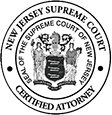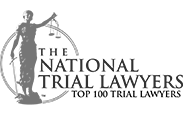 The decision to entrust your elderly parent or loved one to the care of a nursing home is never an easy one. Nursing home abuse is an unfortunate reality, but the signs of physical abuse or neglect are often clear. Unfortunately, financial abuse of the elderly by nursing home staff isn’t always as easy to pinpoint.
The decision to entrust your elderly parent or loved one to the care of a nursing home is never an easy one. Nursing home abuse is an unfortunate reality, but the signs of physical abuse or neglect are often clear. Unfortunately, financial abuse of the elderly by nursing home staff isn’t always as easy to pinpoint.
If you have a parent or family member living in a nursing home, learn about financial abuse, including how to spot it and what to do if you suspect your loved one is a victim.
What Is Nursing Home Financial Abuse?
When a member of the nursing home staff steals money or property from a resident without their knowledge or consent, it is considered financial abuse. This type of abuse can come in many forms, including:
- Stealing a resident’s cash or personal belongings
- Promising care or favors in exchange for property or money
- Using the elderly person’s credit card or bank account without their knowledge or consent
- Forging the resident’s signature on financial documents or checks
- Coercing the resident to sign over power of attorney or financial responsibility to the staff member
The extent of financial abuse perpetrated by a nursing home staff member can be anything from stealing cash out of their dresser to more serious crimes that can destroy the resident’s finances.
What Are Signs of Financial Abuse?
Learn the early signs of financial abuse to help you protect your loved one by either ensuring the perpetrator is prosecuted or moving your parent or family member to a different nursing home. Here are a few of the common signs of financial abuse:
- Missing property from the resident’s room
- Unexplained additions to the elderly person’s bank account, like if the abuser convinces the resident to put their name on a joint bank account.
- Changes to the elderly loved one’s will or power of attorney paperwork, such as the addition of a staff member’s name giving them power to make financial decisions
- Sudden changes in the elderly individual’s lifestyle or living conditions
- Checks written out to a staff member
Residents who are victims of nursing home financial abuse will often talk about a new friend they made or make comments about giving them a treasured family heirloom or money, even if they were told by the abuser to keep their relationship a secret.
What Do You Do If You Suspect Your Loved One Is a Victim?
Act quickly if you suspect your loved one is being victimized financially. Ask your loved one if anyone is stealing their property, threatening them, or asking them for money. If the perpetrator is convincing their resident their family is the enemy or is threatening to hurt them, your loved one might be reluctant to talk.
Speak to the other residents about incidents of financial abuse and ask if they suspect your relative is a victim. Take several photographs of your loved one’s belongings and room. Note any items that are missing presently or turn up missing in the following days. Look at your loved one’s financial and personal records, including bank statements, power of attorney paperwork, and will to determine if any recent changes have been made that you weren’t aware of.
After gathering evidence, including any incriminating photos or paperwork, contact the authorities. Do not report the suspected staff member to a supervisor or other representative. If the nursing home has widespread financial abuse, informing the potentially-guilty party could be disastrous. Provide the police with your evidence and allow them to proceed. Also report the incident to your state’s adult protective services or department of social services.
After you’ve informed law enforcement, contact an attorney in your area who specializes in nursing home abuse. An attorney can help you investigate the abuse further to determine how long it has been going on, if there are any other victims, and how much money or property was stolen.
How Can You Prevent Financial Abuse?
Preventing financial exploitation is possible with early intervention. Here are a few things you can do to ensure your loved one’s finances are protected:
- Understand the risk factors. Loneliness, isolation, diminished mental capacity, and a lack of awareness about financial abuse are all potential risk factors.
- Educate your loved one. Discuss financial abuse, including the signs. Ask your loved one to tell you immediately if someone is stealing or attempting to gain access to their finances.
- Stay in contact. Talk to your loved one often. Ask them about their finances or if anything suspicious has occurred.
With your loved one’s consent, work with their bank, credit card company, and other financial institutions to monitor any differences in spending habits or other strange occurrences.
Financial abuse of the elderly in nursing homes is an unfortunate reality that can be prevented. If you have any more questions or believe your loved one is a victim of financial abuse, contact Gelman, Gelman, Wiskow & McCarthy LLC.







